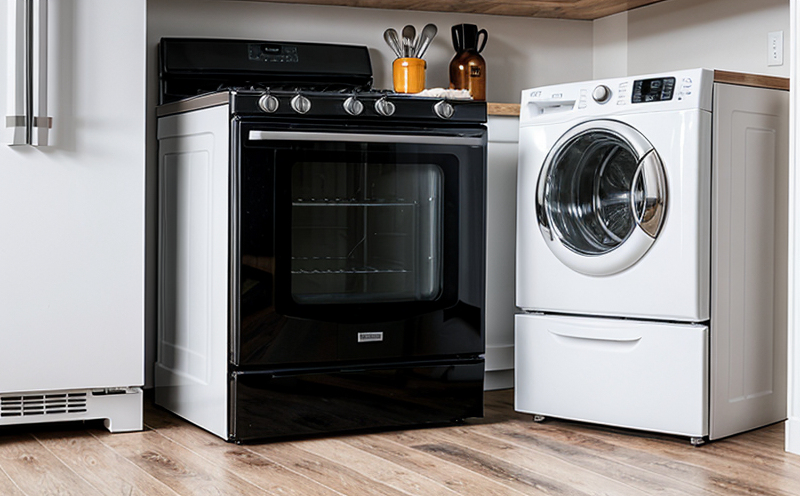Radiated Immunity Testing of Household Electrical Devices
In today’s interconnected world, household electrical devices are exposed to a wide range of electromagnetic environments. Radiated immunity testing is crucial for ensuring that these devices function reliably and safely in such environments without being affected by electromagnetic interference (EMI). This service focuses on evaluating the susceptibility of household appliances to radiated electromagnetic fields, which can cause malfunctions or even safety hazards.
During this test, controlled radiated signals are applied to the device under test (DUT) over a specific frequency range. The purpose is to determine whether the DUT meets the immunity requirements defined by relevant standards and regulations. Compliance with these requirements ensures that devices can operate safely in real-world conditions without being interfered by EMI.
For quality managers and compliance officers, this testing is essential for ensuring product safety and regulatory compliance. R&D engineers can rely on this service to identify potential design flaws early in the development process, while procurement professionals ensure that components used meet the necessary standards before integration into final products.
The test setup involves placing the DUT in a controlled environment where it is subjected to radiated electromagnetic fields across various frequency bands. The testing apparatus includes a radiated field generator and monitoring equipment capable of detecting any anomalies caused by interference. Once the tests are completed, detailed reports are generated summarizing the results and highlighting areas requiring further attention.
Customer satisfaction in this sector is paramount, as non-compliance can lead to product recalls or even lawsuits due to safety issues. By providing accurate and reliable radiated immunity testing services, we help maintain high standards of quality and safety within consumer products.
Why It Matters
The importance of radiated immunity testing cannot be overstated in today’s technologically advanced world. Household electrical devices are increasingly becoming part of smart home ecosystems, which rely on seamless communication between various components. Any failure caused by electromagnetic interference could disrupt this connectivity and potentially cause safety hazards.
Regulatory bodies worldwide have implemented strict standards to ensure that all household appliances meet certain levels of immunity against radiated EMI. Non-compliance can result in product bans or recalls, which not only affect the manufacturer’s reputation but also lead to financial losses. Therefore, investing in robust testing procedures early in the product lifecycle is crucial.
From a consumer perspective, products that pass rigorous radiated immunity tests are more likely to provide long-term satisfaction and reliability. Users expect their appliances to operate consistently without unexpected disruptions due to external EMI sources like radio transmitters or other household devices.
For quality managers and compliance officers, ensuring adherence to these standards is part of their responsibility. By leveraging our radiated immunity testing service, they can confidently demonstrate compliance with international regulations such as IEC 61000-4-3 and EN 55022, thereby protecting both the brand’s reputation and customer trust.
R&D engineers benefit from this service by identifying potential design weaknesses that could otherwise lead to product failures in the market. Early detection allows for corrective actions during the prototyping phase rather than post-launch modifications, saving time and resources.
Finally, procurement teams can use the results of these tests as part of their supplier evaluation criteria. Only suppliers who consistently deliver components capable of withstanding radiated immunity levels aligned with industry standards should be considered for long-term partnerships.





